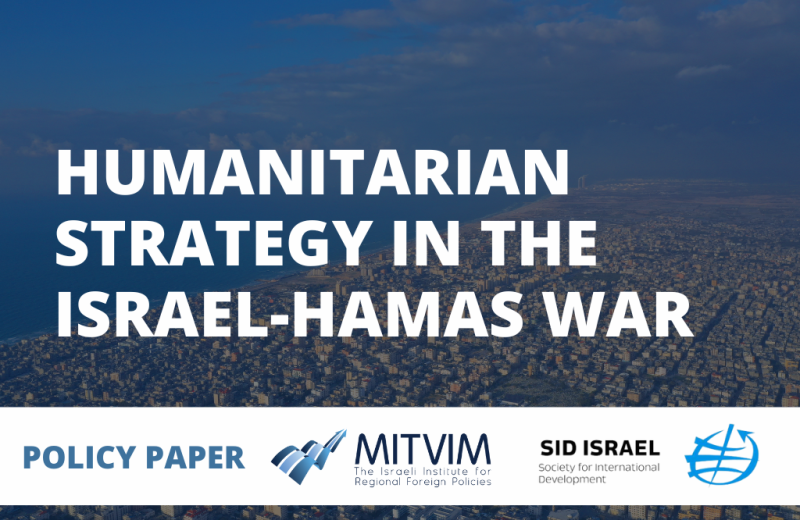 Policy Papers and Reports
/ The Gaza Campaign
Policy Papers and Reports
/ The Gaza Campaign
The document discusses the significance of developing a strategic policy for the humanitarian response in Gaza, emphasizing its importance as a vital Israeli interest. Humanitarian strategy is overall management of the humanitarian issue while maintaining a long-term vision and partnership with other players in the field, based on the humanitarian knowledge and experience from around the world, in order to satisfy the basic needs of life in the region and as an integral part of the efforts to achieve a stability and security. First, this document presents the principles of humanitarian aid in general, followed by the specific case of Gaza and its complexities. Then, it presents Israel’s actions in view of the humanitarian situation and presents the principles that should be considered as significant cornerstones in the strategic planning of humanitarian response moving forward. Finally, the document proposes the establishment of two central and coordinated mechanisms that will conduct the humanitarian response. One will be a political mechanism entrusted with the making of the strategic decisions that will shape humanitarian policy and will be composed of state entities and central aid agencies. The other will be an operative-executive mechanism entrusted with the implementation of the humanitarian policies and activities on the ground. The document emphasizes that Israel’s security rests on a number of factors, including the promotion of a political solution, international legitimacy, a positive moral identity, and a stable environment – and that proper management of the humanitarian response in Gaza may contribute to all of these. Therefore, it is very important that Israel be a central and influential factor in this process and make sure that it is coordinated with its political and security efforts.
This document is one of a series of studies and policy documents that examine the relations between the local climate and foreign policy, as part of a project by the Mitvim Institute and with the support of the Glazer Foundation. The document was written in collaboration with SID-Israel, the umbrella organization of the Israeli professional community in the fields of humanitarian aid and international development. SID-Israel incorporates civil society organizations, government institutions, academic and research programs, private companies, consultants, and independent experts, and works to create a supportive professional environment, based on the exchange of knowledge and experience. Sid-Israel was established and operates thanks to the generous and ongoing support of Pears Foundation.


